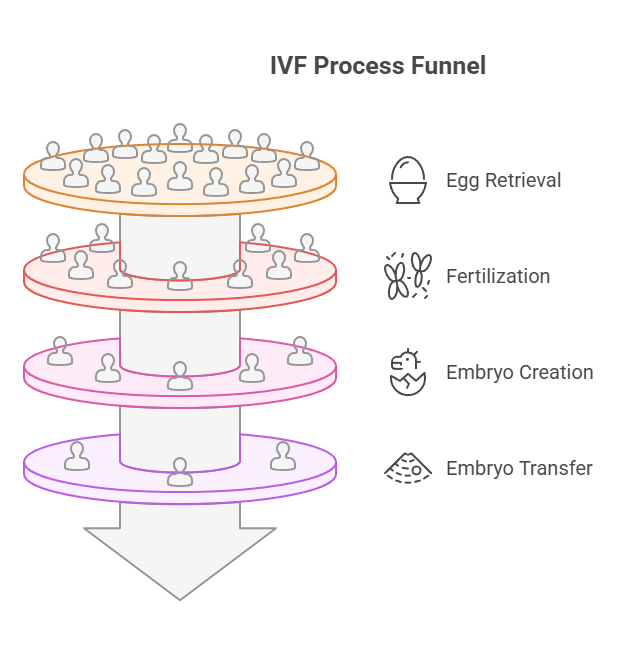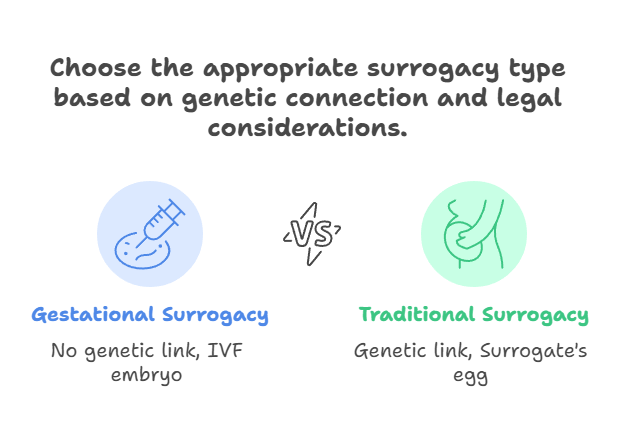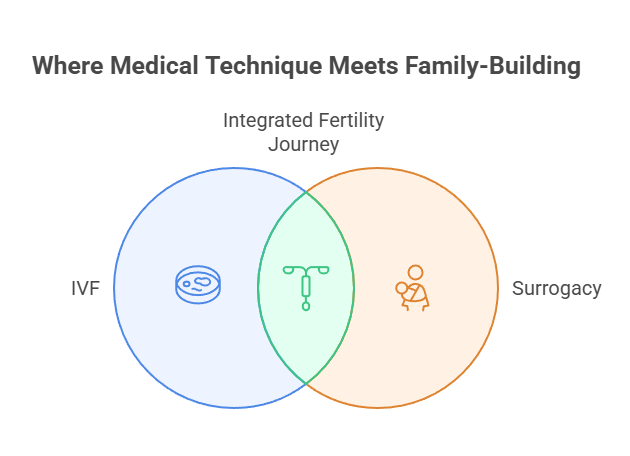Understanding Two Paths to Parenthood
Short Answer:
Surrogacy and IVF are not the same. IVF (In Vitro Fertilization) is a medical process used to create embryos outside the body, while surrogacy is a family-building arrangement where a woman carries a pregnancy for someone else. In fact, IVF is part of the surrogacy process — but many people do IVF without surrogacy, and vice versa.
Let’s break it down in more detail 👇
1. What Is IVF?
IVF, or In Vitro Fertilization, is a type of assisted reproductive technology (ART). It involves several steps:
- Hormone treatments to stimulate egg production
- Egg retrieval from the ovaries
- Fertilization of eggs with sperm in a lab
- Creation of embryos
- Embryo transfer into the uterus
Who uses IVF?
- Couples struggling with infertility
- Women with ovulation issues or blocked fallopian tubes
- Same-sex couples (with donor eggs or sperm)
- Individuals using surrogacy

2. What Is Surrogacy?
Surrogacy is an arrangement where a woman (the surrogate) agrees to carry a baby for someone else (the intended parents). There are two types:
- Gestational Surrogacy: The surrogate has no genetic link to the baby. The embryo is created using IVF from the intended parent(s)’ egg and sperm (or donors).
- Traditional Surrogacy: The surrogate uses her own egg, making her the biological mother. This is now rare due to legal and emotional complexity.
Who uses surrogacy?
- Individuals or couples unable to carry a pregnancy (medical or physical reasons)
- Same-sex male couples
- Single men or women unable to conceive naturally

3. How IVF and Surrogacy Work Together
In most modern surrogacy journeys, IVF is used to create the embryo, and that embryo is then transferred to the surrogate’s uterus.
So IVF is a medical technique, and surrogacy is a family-building arrangement that often uses IVF as a step in the process.
More: The Role of IVF in Surrogacy: What Intended Parents Should Know

4. IVF Without Surrogacy vs. Surrogacy with IVF
| Situation | IVF Used? | Surrogate Involved? |
|---|---|---|
| A couple with infertility does IVF and carries the baby themselves | ✅ Yes | ❌ No |
| A gay couple works with a surrogate using an egg donor | ✅ Yes | ✅ Yes |
| A woman with a uterus condition uses her own egg but has a surrogate carry the baby | ✅ Yes | ✅ Yes |
| A couple uses a sperm donor and carries the baby on their own | ✅ Maybe | ❌ No |
5. Legal and Emotional Differences
- IVF focuses on medical treatment. The legal considerations are usually about embryo ownership or donor rights.
- Surrogacy involves legal contracts, parental rights, and emotional agreements. Surrogacy is more legally complex and emotionally involved.
Both journeys require counseling and expert support.
✅ Conclusion: Different Tools, Often Used Together
While IVF and surrogacy are closely related, they are not interchangeable. IVF is the lab process used to create life. Surrogacy is a journey to help someone else grow that life when they cannot do it themselves.
Whether you’re considering IVF, surrogacy, or both — it’s important to understand your options and build a plan with medical and legal professionals.




